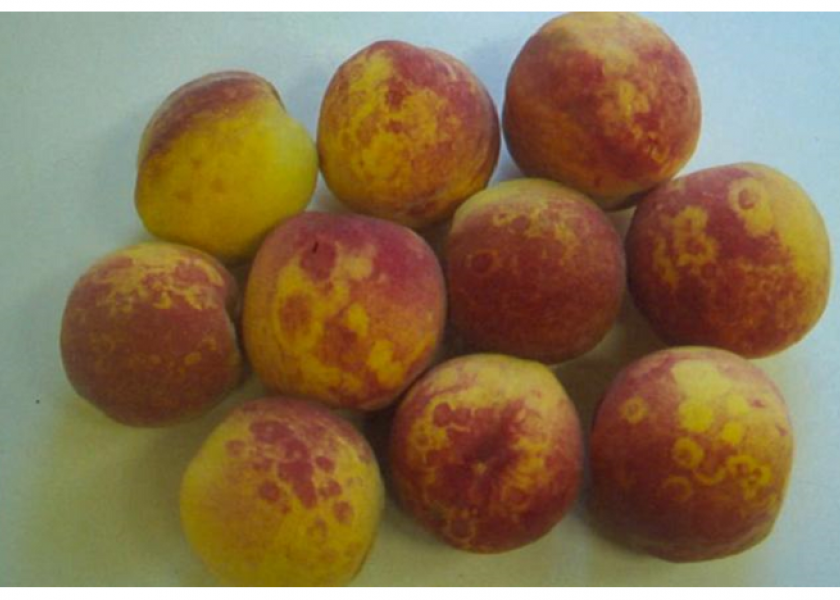USDA declares U.S. free of plum pox virus

The U.S. Department of Agriculture has declared the U.S. is free of the plum pox virus, which harms stone fruit trees like peaches, and almonds.
In an Oct. 17 ceremony in Washington, D.C., Greg Ibach, USDA under secretary for marketing and regulatory programs, signed a proclamation on the fight against the virus.
“Today, our 20-year fight against plum pox disease is officially over,” Ibach said at the ceremony, according to a news release. “Working with our partners, we’ve eliminated this disease and protected the United States’ $6.3 billion stone fruit industry.”
The U.S. is the only country with the disease that has successfully eradicated it, according to the release. Plum pox causes yield losses and reduces the marketability of stone fruit. It’s spread by aphids over short distances and by infected nursery stock over long distances, or by grafting infected buds onto healthy trees, according to the release.
First detected in Pennsylvania in 1999, plum pox was detected in Michigan and New York in 2006.
The USDA, growers, departments of agriculture in affected states and others helped to fight the disease by removing affected trees, planting plum pox virus-tolerant plants and “temporarily banning the planting of susceptible stone fruit varieties, according to the release.
Eastern New York, the last area with plum pox, completed its third year free of the virus in 2018.
The USDA’s Animal and Plant Health Inspection Service continues to monitor for the disease in stone-fruit producing states, and has import regulations to ensure nursery stock with plum pox doesn’t enter the U.S.







